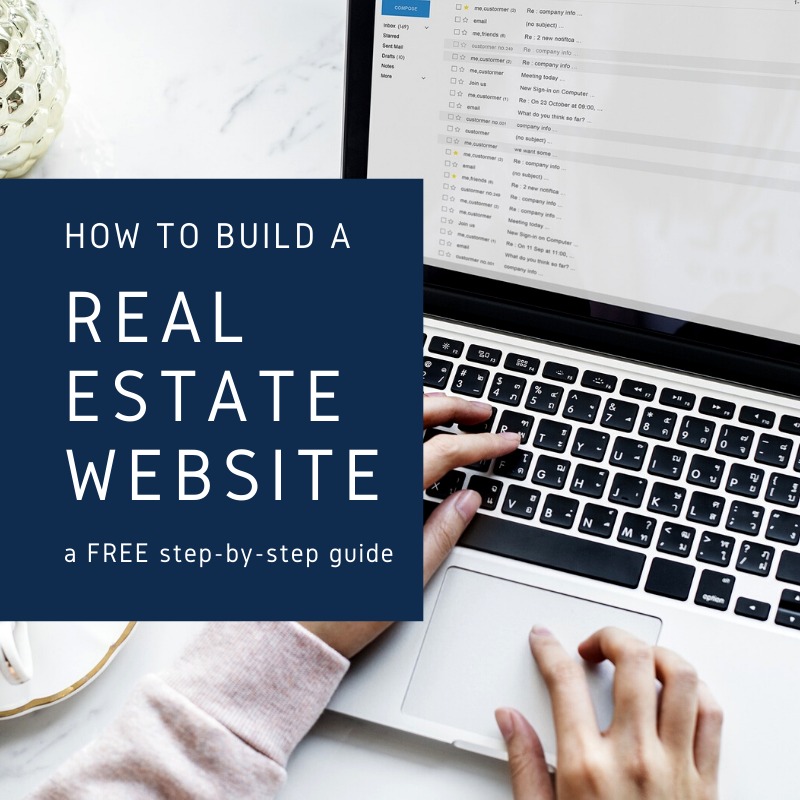Have you ever wondered how to start a real estate business?
Real estate is a hot career path, and for good reason. Real estate allows you to be your own boss and offers unlimited income potential. And it doesn’t require a college degree.
But launching a real estate career is similar to launching a new business start-up. You need to know how to start your business, how to land your first clients, and how to grow your business successfully. That’s what this point is all about!
A quick note: when we talk about how to start a real estate business in this post, we’re talking about your own personal real estate business, not a large real estate firm. But we’ll also give you some tips for growing your single-person real estate business into a full-scale real estate brokerage if that’s what you want to do! Of course it’s in your best interest to start small, learn the industry, and raise the stakes as you gain knowledge and experience. So with that in mind, here’s how to start a real estate business…

How to Start a Real Estate Business
There are 4 basic steps in starting a real estate business. Let’s go through them together.
But first, an optional pre-step. If you’re serious about getting into real estate, I recommend investing just a little time in learning more about the business before you invest in getting your real estate license and launching a real estate business. There are several brilliant books designed for new real estate agents that are perfect reads for anyone even considering real estate. These books will tell you more about the job requirements so you can work toward your new career with your eyes wide open.
Ok, on to the steps…
Step 1: Get Licensed
Before you can start your real estate business, you need your real estate license.
This process varies by state, but the steps are similar:
- Complete a few real estate education courses
- Study, study, study
- Pass your real estate exam
The most important part of this step is choosing the right real estate school. Because, if your school doesn’t prepare you to pass the state exam, what’s the point of taking the classes? While you can take your required real estate classes from almost any community or state college, online real estate schools are a far more cost-effective option. My recommendation is AceableAgent. AceableAgent has among the highest exam pass rates of any real estate school in the country, probably because test-prep is included in your coursework. And their courses are all designed so you can study from your phone or tablet whenever you have a few spare minutes to squeeze in a lesson. Oh, and they’re super affordable.
If AceableAgent isn’t yet available in your state, Real Estate Express is another excellent option.
Your coursework and test-prep will probably take 2-6 months (depending on your state requirements). Then you’ll be ready to take your state exam. We have several tips for passing your exam on the first try, but you should know that many people need more than one attempt to pass, so don’t stress yourself out too much about the exam.
Step 2: Join a Brokerage
Most states expect you to choose your supervising broker before they’ll officially activate your new real estate license. This broker will oversee your work as an agent.
Real estate brokerages are all different. Some offer lots of structure and training. Some leave you alone to do the job your own way. As a new agent, it’s generally a good idea to choose a more structured broker with strong training. Your real estate classes will teach you the legalities of real estate, but they won’t give you much help in terms of how to actually run a successful real estate business. For that, you need on-the-job training, and your new broker can be an excellent resource.
Take the time to interview multiple brokers, and remember: you’re interviewing them. Take a list of questions with you. As long as you’re serious about becoming a successful agent, the brokers should be trying to impress you even more than you’re trying to impress them.
With your brokerage selected, you’ll be able to activate your real estate license and get to work!
Step 3: Have a Business Plan
I’ve seen a lot of new agents in my day. Most are full of enthusiasm but are generally lacking in concrete ideas for operating their new business.
How will you finance your business until that first paycheck? Who are your customers (and no, “buyers and sellers” is not good enough; you need to niche down if you want to resonate with anyone)? How will you market yourself and your listings? How will you even get your first listing?
The agents who succeed are the agents who enter the business with a plan.
Before your first day (maybe even while you’re interviewing brokers), spend some time crafting your real estate agent business plan. This will help you hit the ground running.
Oh, and if you’re wondering how to start a real estate business part-time, check out 5 Secrets to Being a Successful Part-Time Real Estate Agent.
Step 4: Start Generating Leads from Day One
Without leads, you don’t have a business.
Don’t be like the thousands of agents who waste their entire first week on administrative tasks. Start generating leads from Day One!
How?
Here are the best ways to get started:
- Make a list of every single person you know and contact them one-by-one to make sure they know you’re a licensed real estate agent. Ask each contact if they’re planning to buy or sell in the next year. Then ask them if they know anyone who’s looking to buy or sell in the next year. This is how most agents get their first deal. Keep all your contacts in a CRM (Client Relationship Management) System, which can be as simple as a spreadsheet. You can even buy a CRM spreadsheet template on Etsy for under $10.
- Start sharing insider real estate tips on your social media accounts.
- Set up a professional website. This will give you instant credibility, even if it’s your first day on the job. Believe it or not, you can do this yourself. As a non-techy, I’ve built nearly a dozen sites, and I wrote How to Build a Real Estate Website for completely free step-by-step instructions on building your own website. It’s easier than you might expect, and DYI-ing your site will save you thousands of dollars!
- Start blogging. No, seriously. Blogging can be an insane lead-generator because Google is more likely to display your website on search results if you have a blog.
- Start calling property managers for your Renter-to-Homeowner program (a largely untapped plan to beat your competition for new buyer clients!).
As any experienced agent will tell you, prospecting for new leads should be done every. single. workday. You can download a daily prospecting checklist from Etsy for under $5 to post in your office so you remember to complete your prospecting tasks every day.
With that, you’ve officially learned how to start a real estate business. But starting is just the beginning…
 How to Take Your Real Estate Business to the Next Level
How to Take Your Real Estate Business to the Next Level
Most people don’t just want to start a real estate business; they want to launch a successful real estate business! Here are 4 additional steps you can take to grow your real estate business into a wild success.
Step 1: Build Your Referrals and Repeat Business
The beautiful thing about an established real estate business is that it generates lots of passive, warm leads through referrals and repeat business.
To earn referral and repeat business, you just need to:
- make sure your clients have a great experience, and
- make sure they remember you when they (or their friends and family!) are ready to buy or sell in the future.
Simple, but not easy. For details on how to make these 2 things happen with every client, check out How to Build a Referral Business.
Step 2: Diversify Your Services
Very few established agents are savvy enough to add new services to their real estate businesses. But if you want to diversify your income, provide ongoing value to your clients, and expand your real estate empire, consider adding a few services.
Here are a few ideas:
- Credit repair. During a recession, lenders tend to tighten up, and it becomes harder for buyers to qualify for mortgage financing. So most agents lose business because they have trouble finding qualified buyers. Why not help your clients repair their income? It’s fairly easy to do, you get a fee for service, your clients get their financial lives back, and then you get the commission when they qualify to buy!
- Property management. Property management works in up and down markets. Because there is always a sizeable percentage of the population who need to rent. Earn a fee from property owners by marketing their rental properties, screening their tenants, and drafting the paperwork. You can stop there, or you can earn an ongoing income by managing the property all year, being the tenant’s point of contact, making sure rent is collected, and coordinating any necessary home repairs.
- Property tax appeals. This genius income stream is largely untapped simply because it sounds boring. But, as someone who consulted on property taxes for many years, I can tell you: you already basically know how to do this, it doesn’t take much time, and it can be highly lucrative (especially during a recession when agents need the money most!). We don’t have time to get into the brilliance of property tax appeals today, but please check out How to Make Money with Property Tax Appeals. It will revolutionize your real estate business!
By the way, with each of these services, you’re also establishing yourself as the local real estate expert and growing your client base. If you’re not taking advantage of these income streams, consider this next step…
Step 3: Grow Your Team
You can’t do it all. I know you want to, but you can’t.
Agent burnout is a real thing. But it can be avoided by leveraging a team to help you manage the (hopefully expanding!) workload.
You can start small with an unlicensed assistant (whether you work together in-person or you choose a virtual assistant to work from elsewhere). Someone to return messages, set appointments, and handle your paperwork on a part-time basis. Or you could consider a social media manager because we all know social media can be time-consuming. You can outsource your blogging to a ghostwriter (like me!) if that’s taking too much of your time. There are tons of options in today’s world of freelancing and outsourcing!
If you want to add licensed buyer’s agents and/or listing agents to your team, you’ll likely need your broker’s license first, since most states require the supervising agent to be a broker. Getting your broker license is a similar process to getting your real estate license. But you may need a few years of experience as an agent before your state will allow you to apply for a broker license.
When you’re starting to hate your job because you end each day with a longer to-do list than the day before, it’s time to hire help. Remember, this doesn’t have to mean paying someone a full-time salary. It might just mean spending a few hundred dollars per month to have your social media handled by a pro.
Step 4: Consider Starting Your Own Brokerage
If you saw the title “How to Start a Real Estate Business” and wanted this post to be about launching a real estate firm, this section is for you.
But a word of warning: managing a brokerage isn’t for everyone. It will take you away from the satisfaction of working with buyers and sellers and will land you squarely in a heap of faux dramatic office politics. If you got into real estate to work with buyers and sellers, you can grow your own real estate team without starting your own brokerage. But if you’re a born manager and enjoy management, go for it!
Here are a few different ways to start your own brokerage:
- Work up slowly. Start as an agent, get your broker license and build a team of agents under you. When you feel your team is large enough, you can stop working for your existing broker and branch out on your own, filing the paperwork necessary to start your own real estate brokerage in your state.
- Buy an existing brokerage. If you have more money than time, make a local brokerage an offer. Make sure all agents, training systems, clients, and proprietary software are included in the purchase agreement.
- You might even be able to purchase a brokerage with no money down. Here’s how: find a broker looking to retire. At the right age, many people want to retire, but can’t because they still need an income. Instead of offering a lump-sum, offer to pay that broker a commission on each sale until you reach an agreed-upon total. This will fund the broker’s retirement while getting you control of a business. A couple warnings: 1) the broker may need to keep his or her license active in order to legally accept a commission on each sale, and 2) you will need to become the supervising broker for that brokerage on all legal documents to take the liability off the retiring broker.
Get a Small Win
Great victories are made possible by small wins. Before you move on with the rest of your day, get a small win!
You now know how to start a real estate business. Today, take your first step in that direction.
If you’re just starting to think about this career path, order a copy of The Honest Real Estate Agent. This book is designed for brand new agents and will give you a good overview of what it takes to be a successful agent. That way you can decide if this is the right path for you.
If you already know this is the career you want, sign up for your real estate courses today. Having reviewed scores of schools nationwide, my recommendation is AceableAgent for anyone lucky enough to live in a state they serve. For all other states, Real Estate Express is one of the most reputable real estate schools with engaging curriculum and comparatively high exam pass rates.
Don’t wait another day to start your new business!









